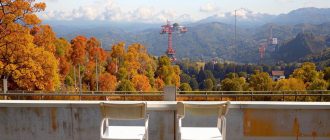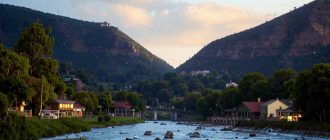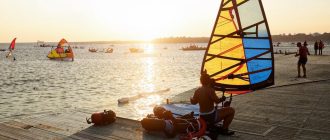Why did the Netherlands drop the name Holland? A historical guide before the Euro match

We answer the question and share interesting facts about this Euro 2024 country.
The fierce debates of the inhabitants of this extraordinary country are a thing of the past. A number of generations over several centuries have been asking an almost Hamletian question: who are we – the Dutch or the Dutch? On January 1, 2020, the authorities of the state located in Western Europe, decided to call the country the Netherlands. Instead of the usual rumored Holland. Before the game of the World Cup 2024 between the Netherlands and France, we understand why this happened.
Where did Holland come from?
Let’s face the historical truth. The former Holland was actually a province, located near Amsterdam, and, in fact, could not claim the name of the whole country. After all, the other 10 regions were not part of it. Why did Holland attract such attention? The point is that it was the most developed among all other provinces and was considered innovative and advanced.
Literally, “Holland” (“holt land”) translates as “wood country”. But the damp swamps and the proximity of the sea did not prevent the construction of strong houses on stilts, which are still standing today. In the Middle Ages, the county of Holland was located in the areas near modern Amsterdam. At first it was part of the Holy Roman Empire, and then – Spain.
Thus, in the XVI century the state was completely under the heel of the Spanish crown. King Philip II was known as a cruel and treacherous ruler. He gave free rein to the Spanish Inquisition, which mercilessly dealt with dissenters. The year 1560 would be the beginning of the liberation struggle for independence.
In the country appeared a new religious movement – Calvinism, whose leaders sharply criticized the Catholic Church. Outraged by such heresy Philip II did not hesitate long. The war lasted several decades. As a result, the northern territories went to the Calvinists – and became known as Holland. And the southern regions remained under the Spanish crown and were called Flanders.
Throughout its history, the Netherlands had different political statuses. Until they settled on constitutional monarchy. This form of government is still in force today.

Why did they decide to change the name?
The government of the country does not deny that it is tired of not the most pleasant association with the “Red Light District” and legalized illegal substances. According to officials, the name change will help fight the phenomenon of “drunken tourism” and bring the country to a new tourist level. The Netherlands first appeared in its new status at the 2020 Tokyo Olympics and the Eurovision Song Contest.
“We want to present the Netherlands as an open and resourceful country with a positive image without ambiguity,” the foreign ministry said in a statement.
What’s the correct way to say Dutch or Dutch?
Officially, the second option is correct. But none of the inhabitants of the country will not take offense if you suddenly call him a Dutchman. Moreover, soccer fans use the former name of the country in their shouts. And all because it is easier to rhyme. Also in the state there are no prohibitions on the use of the word “Dutch”.

Not all tourists are welcome here
Every year, millions of tourists flock to Amsterdam in search of fun. For the small capital it is a real disaster. The Ministry of Tourism has even decided to tighten the rules for tourists to discourage at least some of them. First, they raised the tourist tax, then banned sightseeing bus tours through the central streets of the capital, limited the number of cruise ships. They even came up with a whole campaign for careless tourists – it’s called “Stay away”. For example, stores, restaurants and pubs will now close earlier to limit the number of people at night.
By the way, the famous “Red Light Quarter” wants to move from the historic center of De Wallen to another place. Amsterdam Mayor Femke Halsema is a fierce opponent of the red light district. She proposed to build a high-rise complex on the outskirts of the city to relieve the center and attract tourists with historical sights rather than the naked bodies of love priestesses. The plan is to take seven years to build and the Quarter will move in by 2031.
“If we love the city, we have to act now. We are tired of drunken tourism,” believes the mayor of Amsterdam.

Bonus: 5 interesting facts about the Netherlands
- The Dutch national soccer team has made it to the World Cup finals three times – in 1974, 1978 and 2010. But, alas, it lost all three times – for which it was quietly given the title of the biggest losers in the history of world championships. In 1988, the Dutch national team won the European Championship, beating the USSR national team 2-0.
- The homeland of tulips today justifies its high purpose. The population of the Netherlands is recognized as the highest in the world. Thus, the average height of men exceeds 182 centimeters, and women – 169.
- In the Netherlands communicate in several languages, despite the fact that Dutch is recognized as the official language. Dialects in the provinces are so different that they were given the status of regional.
- There are more bicycles in the Netherlands than there are people. At one time they even fined for abandoned bicycles, but then they gave up on this phenomenon.
- The Dutch adhere to the principle that an honest person has nothing to hide from prying eyes. That is why curtains on the windows of houses and apartments are quite rare.







